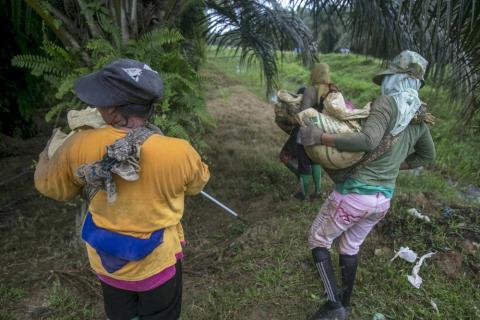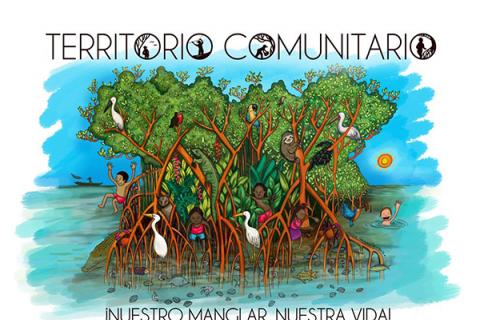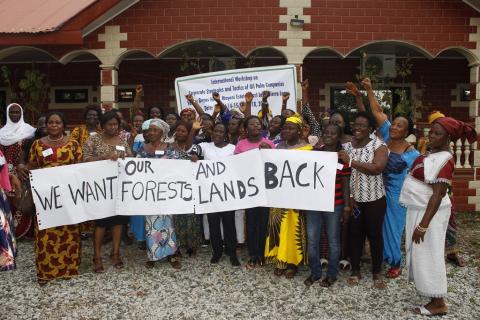This text shares reflections that emerged from our discussions with women impacted by Green Economy projects in Brazil.
Bulletin articles
For the world’s richest men, the environmental crisis has finally arrived. From fleeing into outer space or fantasylands to science-fiction solutions, capitalists desperately seek fossil-fuelled business as usual to continue.
Polluting corporations tell stories about reaching “Net-Zero” emissions while planning to continue, or even increase, destruction and exploitation. Offsets are at the centre of these stories. Of late, offsetting is also being championed by the financial industry.
Indigenous Karen People from Bang Kloi returned to their ancestral home in the Kaeng Krachan forests, after years of dispossession due to the creation of a National Park. Karen communities are mobilizing in solidarity to the Bang Kloi communities’ right to return home.
Can the inclusion of gender-specific policies in the operations of oil palm companies and the RSPO certification scheme do more than cover up the violence and structural patriarchy and racism inherent in the plantation model? How, in such context, do these gender policies unfold?
Despite the massive clearing of mangroves to make way for shrimp farms, and the oppression of fishing and gathering communities, this industry has access to certifications that not only facilitate its entry into foreign markets; they also conceal a history of violence against the peoples of the mangroves.
The Korindo Group cleared Kinggo’s Indigenous People’s forests for its industrial oil palm plantations. Petrus Kinggo and other community leaders were persuaded to give up customary forest land with misleading and false promises. Now they are fighting against the FSC-certified Korindo. (Available in Indonesian).
Communities in West and Central Africa are facing the impacts of industrial oil palm plantations. With the false promise of bringing ‘development’, corporations, backed up with government support, have been granted millions of hectares of land for this expansion.
The crisis in Venezuela from 2013 to 2021 has caused the collapse of a nation that was built around oil over the last 100 years. This has created a situation characterized by the emergence of mining-dominated predatory extractivism.
For capitalists, the customary and collective land tenure systems are obstacles to wealth creation and the accumulation of profit. There has been a strong pressure for formalizing private property land rights for easing its sale and lease for commercial use. This push must stop now!
The tactics and strategies employed to impose land control and extractive operations in the forests are many. Most of these tactics and strategies are criminal acts.
The boundary lines between the “legitimate” and the “criminal” have long been paper thin. Indeed, mainstream capitalist enterprise arguably only prospers because its particular forms of looting, theft, fraud and cheating have been blessed with the holy water of “legality”.











